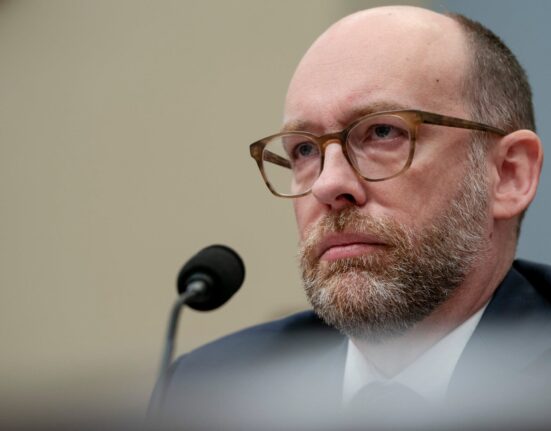Margarita Louis-Dreyfus, a prominent figure in the business world, has raised a critical concern about our society’s growing dependence on technology. As chairperson of the Louis-Dreyfus Group and Human Change Foundation, she shines a light on how our obsession with technological advancements is potentially harming our children.
In today’s fast-paced digital age, we are bombarded with various forms of technology that promise to make our lives easier and more connected. From social media platforms to online learning tools, the rapid evolution of digital tech has reshaped how we interact with one another. However, amidst all the excitement surrounding these innovations lies a hidden truth – the impact they have on human relationships and overall well-being.
“A human change is upon us.”
Tristan Harris, a respected tech ethicist and co-founder of the Centre for Humane Technology, recently issued a stark warning about the impending “AI tsunami” and its far-reaching consequences. His cautionary message serves as a reminder that while technology brings undeniable benefits, it also poses significant risks that must not be overlooked.
Louis-Dreyfus aptly likens the current societal shift to a “human change,” drawing parallels to the urgent need to address global climate change. Just as environmental issues demand immediate action, so too do the changes affecting humanity – particularly our younger generations who stand at the forefront of this technological revolution.
“Manipulative algorithms and addictive features are draining human potential.”
One concerning trend highlighted by Louis-Dreyfus is the excessive time children spend in virtual realms compared to real-world interactions. Studies reveal that today’s youth dedicate more hours to screens than engaging face-to-face, leading to an alarming rise in loneliness and a decline in essential social skills such as emotional intelligence and resilience.
American teens reportedly spend up to nine hours daily glued to screens, with almost half of that time devoted to social media consumption. This prolonged exposure has been linked to heightened anxiety levels due to increased sensitivity towards online feedback. Social psychologist Jonathan Haidt warns that heavy reliance on smartphones hinders young people’s ability to focus and adapt effectively in real-life scenarios.
“Employers cite concerns over Gen-Z workers’ lack of crucial skills.”
The repercussions of this tech-driven lifestyle extend beyond personal development into professional realms. Employers report hesitance in hiring Generation Z employees due to perceived deficiencies in problem-solving abilities, communication proficiency, attention span, and resilience against criticism. Instances where recent graduates struggle with making eye contact during job interviews underscore the adverse effects of screen-mediated relationships.
Against this backdrop stands Tristan Harris’s poignant address at Davos regarding technology’s profound influence on children’s well-being. Speaking from Future House alongside advocates from Human Change and Project Liberty — organizations dedicated to raising awareness about technology’s impact — Harris emphasizes the urgency for society-wide intervention.
“Parents play a crucial role in delaying children’s exposure to smartphones.”
Louis-Dreyfus stresses that addressing this issue transcends individual responsibility; it requires collective action on various fronts. Parents can safeguard their children by limiting smartphone usage until they reach 16 years old while schools worldwide should enforce phone-free environments for improved academic performance and mental well-being.
Governments bear equal responsibility by implementing stricter regulations targeting tech companies accountable for their products’ impact on children’s welfare. Initiatives like Australia’s ban on social media for under-16s set precedents worth emulating globally through legislation such as UK’s Online Safety Act or EU’s Digital Services Act focusing on emerging AI-related risks.
Tech giants must pivot towards prioritizing child safety within their design principles rather than solely chasing innovation without ethical considerations. Failure could lead not only tarnished reputations but also legal battles akin Character.AI facing lawsuits over child harm allegations or TikTok embroiled in litigations related child fatalities linked Blackout Challenge phenomenon — highlighting how neglecting youth well-being may prove detrimental financially besides morally reprehensible.
In conclusion,
the overarching message echoes Louie-Dreyfus’ call for placing future generations’ welfare front-and-center across both corporate strategies government policies alike considering prioritizing kids’ resilience amid ongoing tech disruption isn’t just moral imperative but vital securing societies prosperity long-term









Leave feedback about this